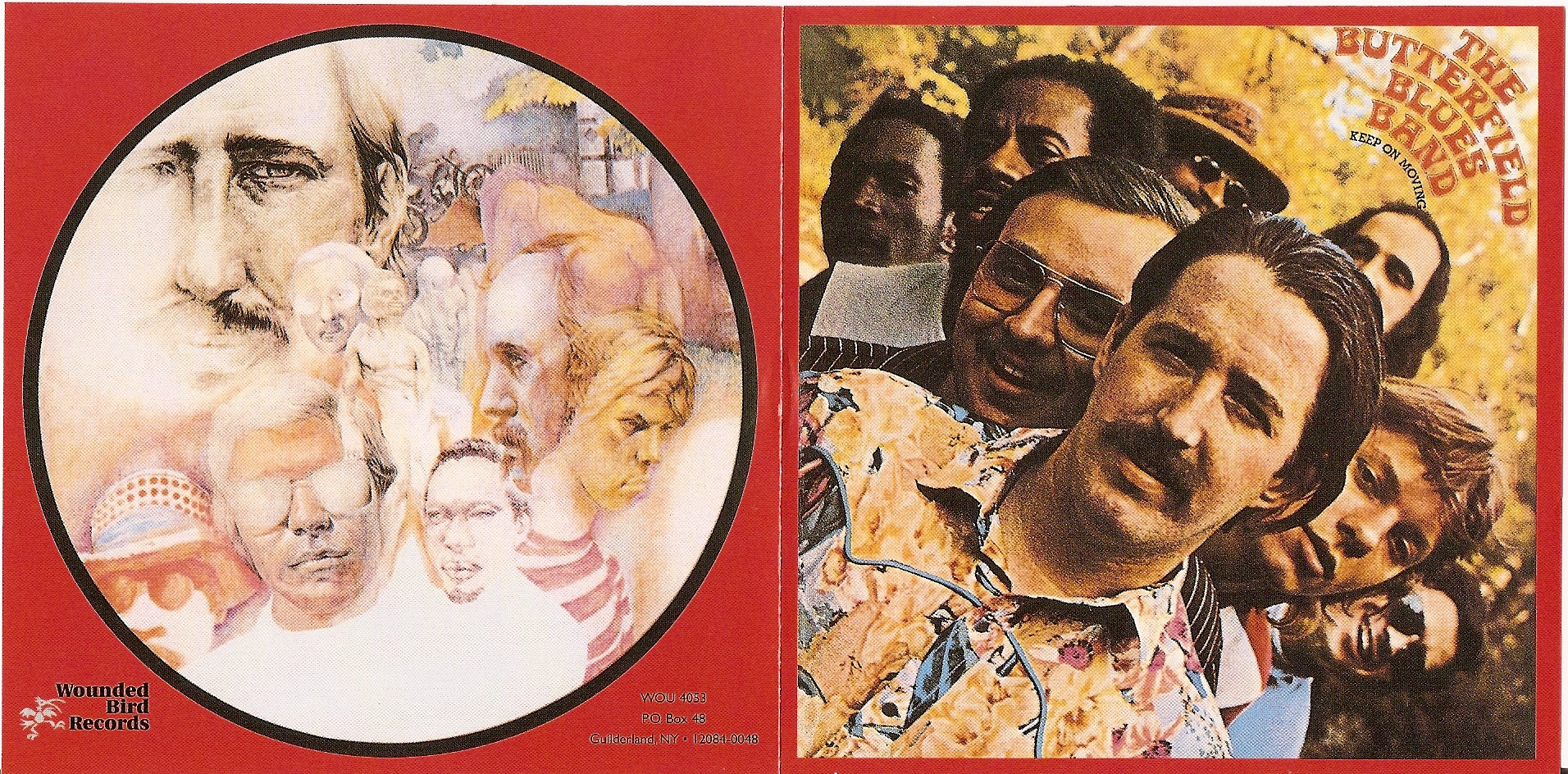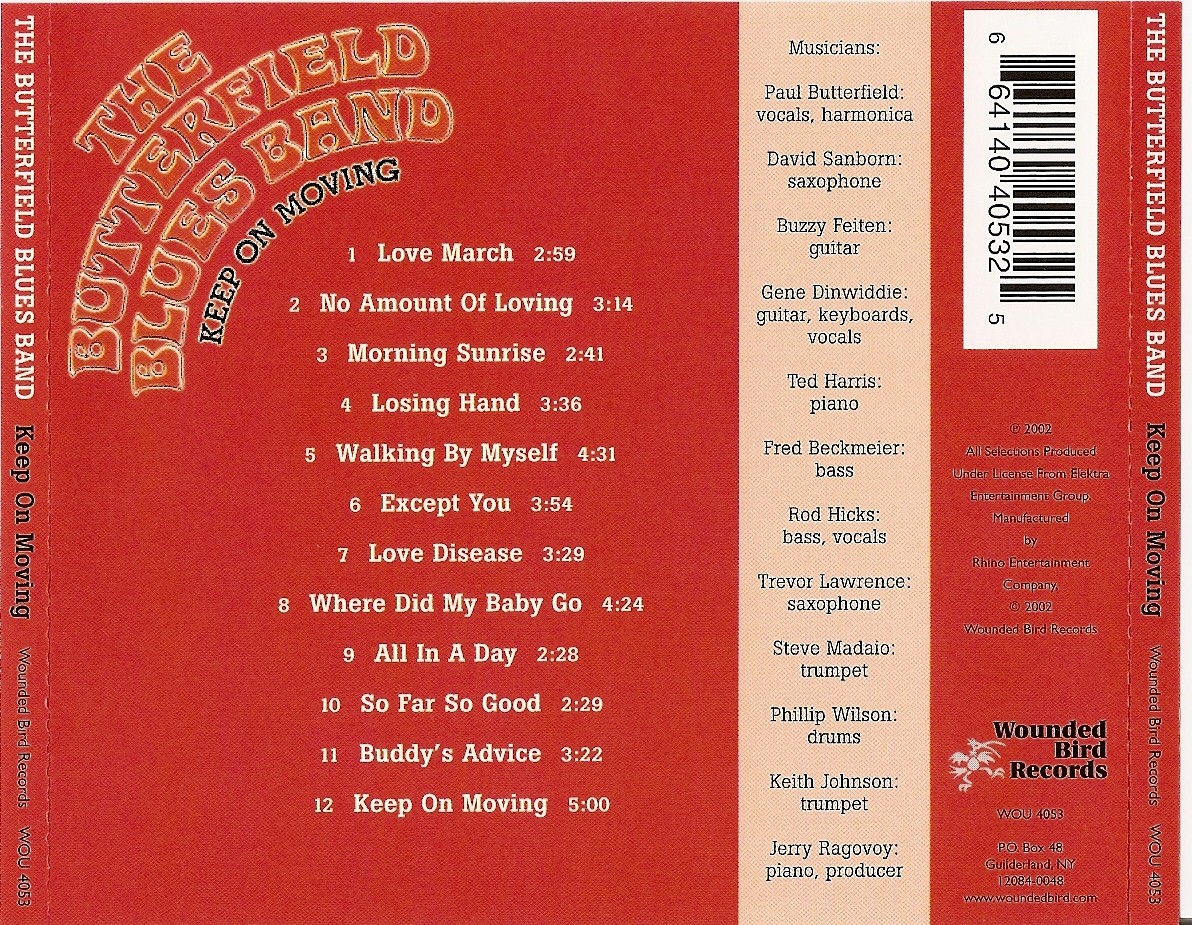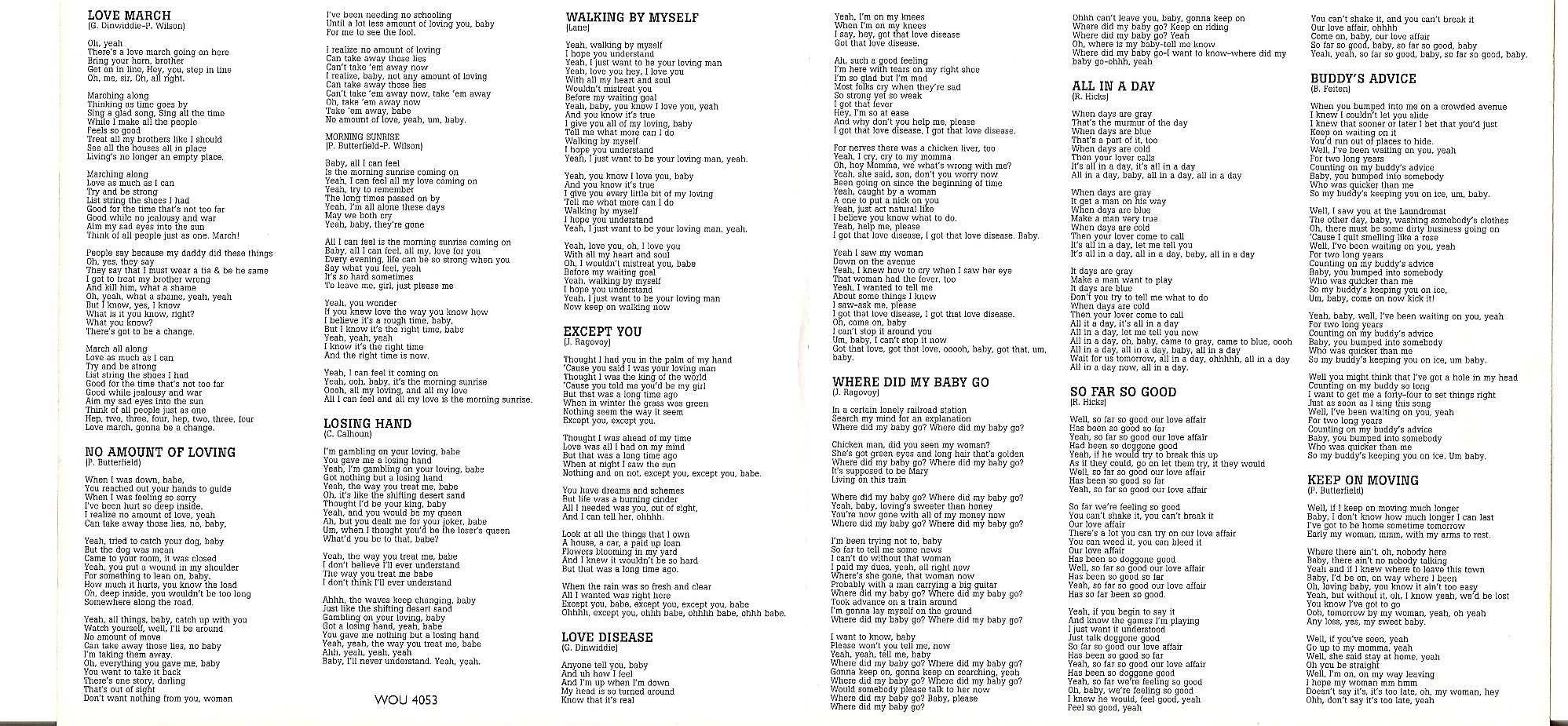| 일 | 월 | 화 | 수 | 목 | 금 | 토 |
|---|---|---|---|---|---|---|
| 1 | 2 | 3 | 4 | 5 | ||
| 6 | 7 | 8 | 9 | 10 | 11 | 12 |
| 13 | 14 | 15 | 16 | 17 | 18 | 19 |
| 20 | 21 | 22 | 23 | 24 | 25 | 26 |
| 27 | 28 | 29 | 30 |
Tags
- Jazz
- Progressive Rock
- eric clapton
- Jeremy Spencer
- blues
- beatles
- Psychedelic
- David Gilmour
- Paul Rodgers
- Candy Givens
- Jimmy Page
- Christmas
- Glenn Hughes
- Bob Dylan
- Tommy Bolin
- John Lennon
- Peter Green
- Joan Baez
- Fleetwood Mac
- Syd Barrett
- Carol
- jimi hendrix
- rock
- Robert Plant
- bootleg
- Zephyr
- Joni Mitchell
- Pink Folyd
- Tribute Albums
- Folk
Archives
- Today
- Total
MusicChain
Keep on Moving - Paul Butterfield Blues Band 본문
반응형
Keep on Moving (1969)- Paul Butterfield Blues Band

1. Love March
2. No Amount of Loving
3. Morning Sunrise
4. Losing Hand
5. Walking by Myself
6. Except You
7. Love Disease
8. Where Did My Baby Go
9. All in a Day
10. So Far, So Good
11. Buddy's Advice
12. Keep on Moving
2. No Amount of Loving
3. Morning Sunrise
4. Losing Hand
5. Walking by Myself
6. Except You
7. Love Disease
8. Where Did My Baby Go
9. All in a Day
10. So Far, So Good
11. Buddy's Advice
12. Keep on Moving

Review by Al Campbell
Released in 1969, Keep on Moving was the fifth Elektra release by the Paul Butterfield Blues Band. During a four-year span the group's namesake and leader was the only original member left from their first album in 1965. Morphing in a similar direction as Michael Bloomfield's Electric Flag, this edition of the Butterfield Blues Band prominently fronted the horn section of David Sanborn on alto sax, Gene Dinwiddie on tenor, and Keith Johnson on trumpet. The band's direction was full tilt, horn-dominated soul music, first explored on The Resurrection of Pigboy Crabshaw, which took them farther away from the highly regarded gritty blues experimentation of East-West and the duel guitar attack of Michael Bloomfield and Elvin Bishop. This album also signaled the final appearance of AACM and Art Ensemble of Chicago drummer Phillip Wilson, whose Butterfield swan song was the collaboration with Dinwiddie on the hippie gospel track "Love March," of which an appropriately disjointed live version appeared on the Woodstock soundtrack album. The difference between Butterfield's 1965 street survival ode "Born in Chicago" ("My father told me 'son you'd better get a gun") and "Love March" ("Sing a glad song, sing all the time") left fans wondering if the band had become a bit too democratic. However, on cuts like "Losing Hand," some of the band's original fervor remains. Butterfield's harp intertwining with the horn section sounds like a lost Junior Parker outtake and the Jimmy Rogers' penned "Walking by Myself," is the closest this band comes to the gutsy Windy City blues of its heyday. The remaining tracks aren't horrible, but tend to run out of ideas quickly, unfortunately making what may have been decent material (with a little more effort) sound premature. Butterfield would make a few more personnel changes, release one final disc on Elektra, Sometimes I Just Feel Like Smilin', and then dump the band altogether to embark on a solo career. In 2006, Sundazed released a High-Definition Vinyl LP version of Keep on Moving.
Released in 1969, Keep on Moving was the fifth Elektra release by the Paul Butterfield Blues Band. During a four-year span the group's namesake and leader was the only original member left from their first album in 1965. Morphing in a similar direction as Michael Bloomfield's Electric Flag, this edition of the Butterfield Blues Band prominently fronted the horn section of David Sanborn on alto sax, Gene Dinwiddie on tenor, and Keith Johnson on trumpet. The band's direction was full tilt, horn-dominated soul music, first explored on The Resurrection of Pigboy Crabshaw, which took them farther away from the highly regarded gritty blues experimentation of East-West and the duel guitar attack of Michael Bloomfield and Elvin Bishop. This album also signaled the final appearance of AACM and Art Ensemble of Chicago drummer Phillip Wilson, whose Butterfield swan song was the collaboration with Dinwiddie on the hippie gospel track "Love March," of which an appropriately disjointed live version appeared on the Woodstock soundtrack album. The difference between Butterfield's 1965 street survival ode "Born in Chicago" ("My father told me 'son you'd better get a gun") and "Love March" ("Sing a glad song, sing all the time") left fans wondering if the band had become a bit too democratic. However, on cuts like "Losing Hand," some of the band's original fervor remains. Butterfield's harp intertwining with the horn section sounds like a lost Junior Parker outtake and the Jimmy Rogers' penned "Walking by Myself," is the closest this band comes to the gutsy Windy City blues of its heyday. The remaining tracks aren't horrible, but tend to run out of ideas quickly, unfortunately making what may have been decent material (with a little more effort) sound premature. Butterfield would make a few more personnel changes, release one final disc on Elektra, Sometimes I Just Feel Like Smilin', and then dump the band altogether to embark on a solo career. In 2006, Sundazed released a High-Definition Vinyl LP version of Keep on Moving.

반응형
'Blues' 카테고리의 다른 글
| King Of The Blues - B.B. King (6) | 2008.04.21 |
|---|---|
| 7936 South Rhodes - Eddie Boyd With Peter Green's Fleetwood Mac (4) | 2008.04.17 |
| With A Little Help From My Friends - Joe Cocker (5) | 2007.05.11 |
| Slow Hand - Eric Clapton (19) | 2007.04.13 |
| Shake Down - Savoy Brown Blues Band (6) | 2007.03.27 |




